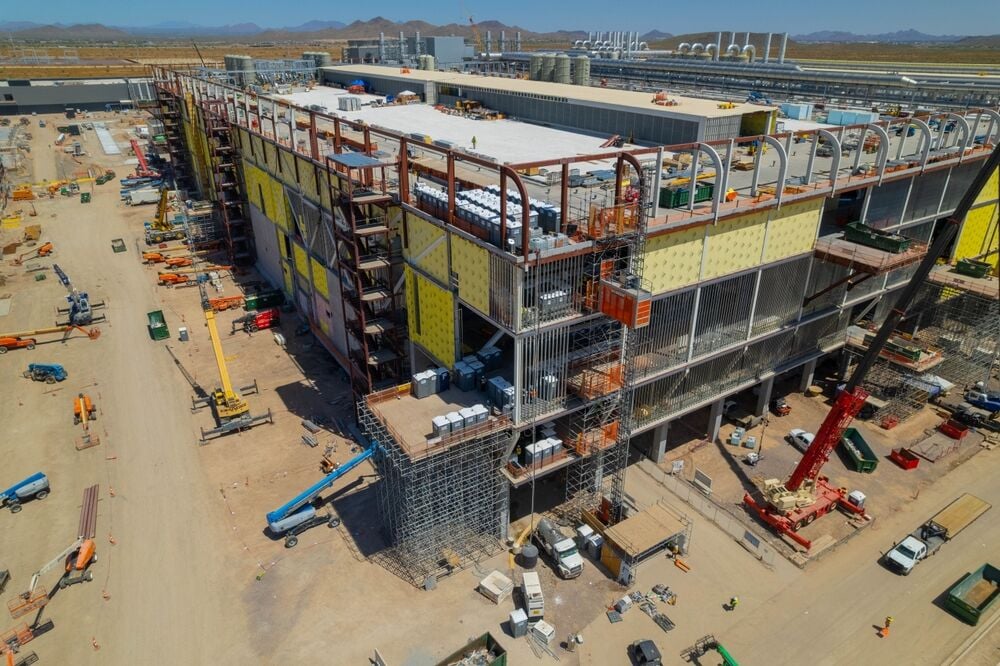TSMC And Amkor Link Up To Bring Advanced Packaging Stateside

Taiwan's TSMC has inked a deal with US semiconductor outfit Amkor Technology to beef up advanced chip packaging on American soil.
The Memorandum of Understanding marks another step in bolstering the US chip supply chain and the country's standing in the global market – a key objective supported by the CHIPS Act.
Amkor provides outsourced semiconductor assembly and test services, specializing in advanced technologies such as fan-out wafer level packaging (inFO) and 3D packaging techniques like chip-on-wafer-on-substrate (CoWoS).
The advanced packaging facility is set to be built in Peoria, Arizona. Notably, fan-out wafer packaging, a technology used by companies like Apple to connect memory to processors in iPhones and MacBooks, will be a focal point at the site.
Amkor's decision to establish the advanced packaging facility near TSMC's Phoenix plant is designed to also with logistical and operational factors in mind.
The alliance represents a shift for the US, which has long relied on overseas operations for advanced stages of chip production. Countries like Taiwan and South Korea have historically dominated this space, offering much of the world's advanced packaging and testing capacity, which is essential for combining multiple silicon dies into single packages.
Establishing this latest facility in the US helps to build a vital part of the nation's semiconductor manufacturing process, reducing America's dependency on foreign production. This shift also mitigates risks associated with geopolitical tensions in East Asia. Currently, only a few companies, such as Intel, Amkor, and Texas Instruments, offer advanced packaging capabilities within the US.
- US may exempt latest chip fabs from eco red-tape, but power is still a trip
- Warm embrace of CHIPS Act cash envelopes Polar Semiconductor
- Intel has officially entered the grin and bear it phase of its recovery
- Intel frees its Foundry biz – and that's just one of many major shake-ups today
Traditionally, the US has focused on front-end chip design and manufacturing, while much of the back-end processes – packaging and testing – were outsourced to Asia. Advanced packaging, which integrates multiple chips into a single module, is becoming increasingly important as it pushes chip performance beyond the limitations of traditional transistor scaling. Products like AMD's Ryzen processors and Intel's Meteor Lake SoC rely on these multi-chip packaging techniques.
While Taiwan remains a dominant force in the industry, this development with TSMC and Amkor aligns with the CHIPS Act's goals of bolstering US semiconductor infrastructure. The $52 billion legislative package is designed to incentivize chipmakers to build and expand within the US, boosting local production capacity.
TSMC's earlier commitment to a $40 billion chip fabrication plant in Phoenix, Arizona, laid the foundation for this deal with Amkor. ®
From Chip War To Cloud War: The Next Frontier In Global Tech Competition
The global chip war, characterized by intense competition among nations and corporations for supremacy in semiconductor ... Read more
The High Stakes Of Tech Regulation: Security Risks And Market Dynamics
The influence of tech giants in the global economy continues to grow, raising crucial questions about how to balance sec... Read more
The Tyranny Of Instagram Interiors: Why It's Time To Break Free From Algorithm-Driven Aesthetics
Instagram has become a dominant force in shaping interior design trends, offering a seemingly endless stream of inspirat... Read more
The Data Crunch In AI: Strategies For Sustainability
Exploring solutions to the imminent exhaustion of internet data for AI training.As the artificial intelligence (AI) indu... Read more
Google Abandons Four-Year Effort To Remove Cookies From Chrome Browser
After four years of dedicated effort, Google has decided to abandon its plan to remove third-party cookies from its Chro... Read more
LinkedIn Embraces AI And Gamification To Drive User Engagement And Revenue
In an effort to tackle slowing revenue growth and enhance user engagement, LinkedIn is turning to artificial intelligenc... Read more

